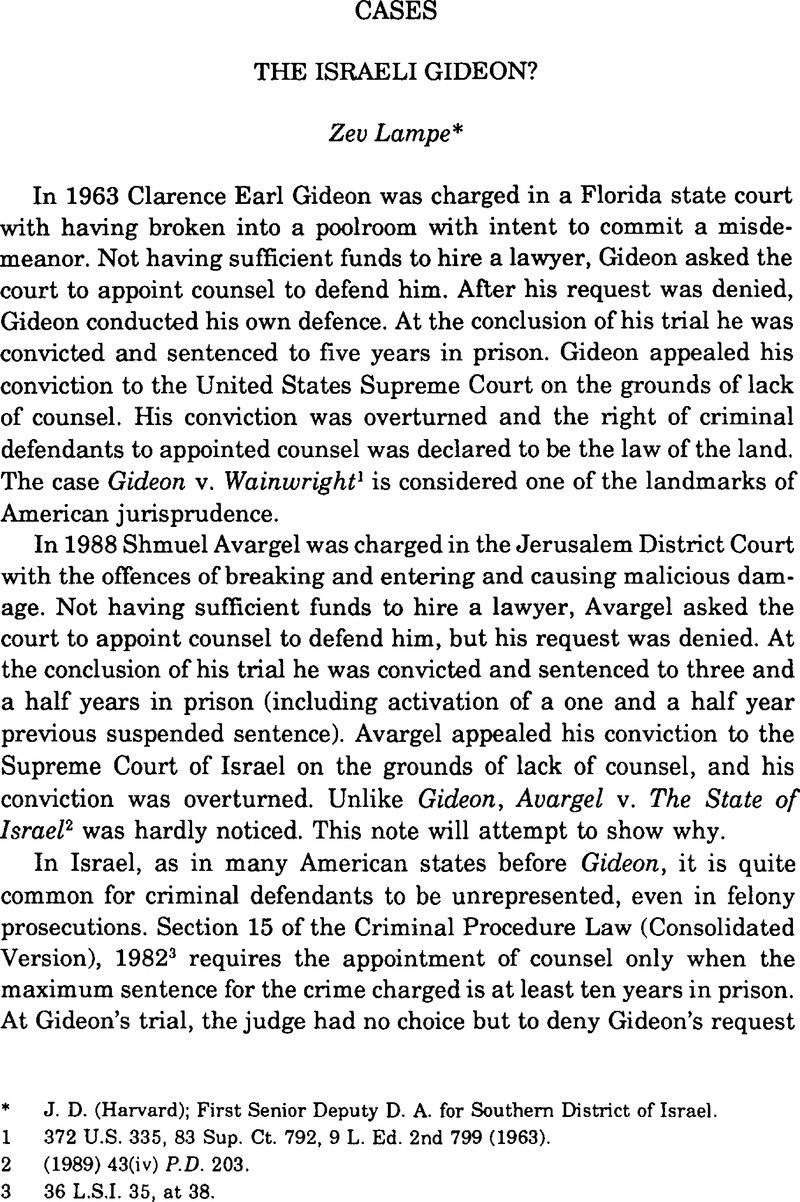No CrossRef data available.
Article contents
Abstract

- Type
- Cases
- Information
- Copyright
- Copyright © Cambridge University Press and The Faculty of Law, The Hebrew University of Jerusalem 1992
References
1 372 U.S. 335, 83 Sup. Ct. 792, 9 L. Ed. 2nd 799 (1963).
2 (1989) 43(iv) P.D. 203.
3 36 L.S.I. 35, at 38.
4 Ibid., sec. 15(c).
5 Avargel, supra n. 2, at 208.
6 Ibid.
7 Ibid., at 209.
8 Ibid., at 205.
9 It might be argued that the Israeli Supreme Court, lacking a Constitution, is not as free as the American Supreme Court in formulating rules to safeguard civil rights. Although Gideon was decided on constitutional grounds, the basis for the decision was a finding that forcing a defendant charged with a serious crime to defend himself is so inherently unfair so as to violate the principle of due process of law. Since the relevant legislation in Israel specifically authorizes courts to appoint counsel for indigent defendants, the formulation of rules as to how that authority will be used (i.e. when counsel must be appointed for indigent defendants) is not a constitutional issue but one of ordinary statutory interpretation.


